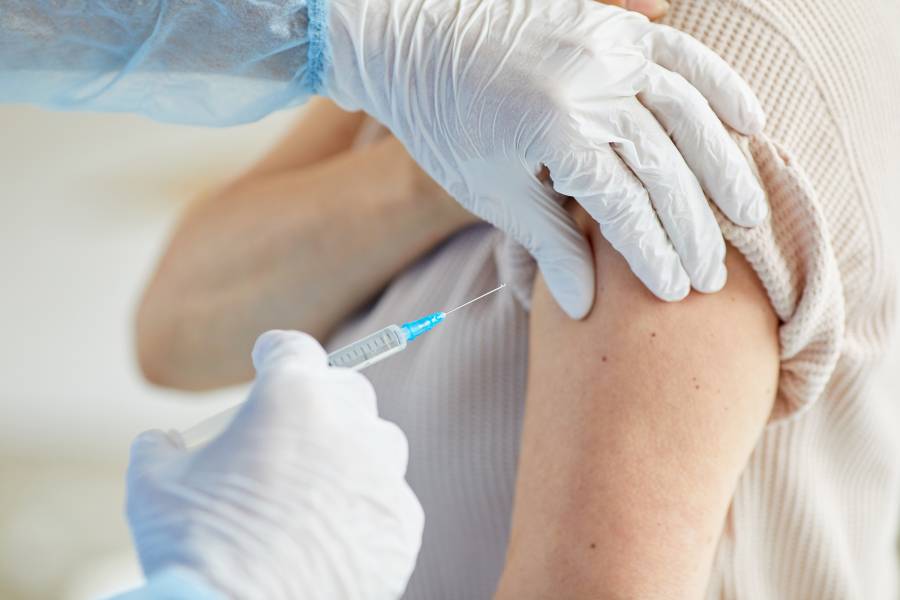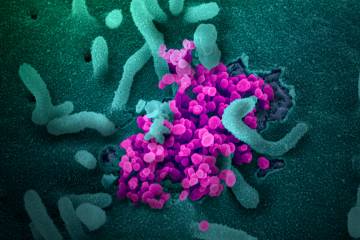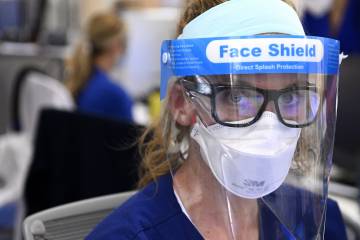For decades, nursing has been one of America's most-trusted professions—a role that has never been more vital to public health than it is now, in the midst of a pandemic marked by the politicization of science and the rise of misinformation.
"The ability to communicate science begins with trust," said Patricia Davidson, dean of the Johns Hopkins School of Nursing, during a webcast Wednesday. "As the most trusted profession, [nurses] have really got a strong profile and platform through which we can make progress in furthering public health."
After all, it is nurses who mobilized to administer COVID-19 tests. Nurses contribute to the care and treatment of COVID-19 patients and have administered millions of doses of coronavirus vaccine in the United States. And when, in January, a hospital refrigerator in Seattle malfunctioned, it was nurses who coordinated an impromptu, mass vaccination drive in a matter of hours to prevent the fast-expiring vaccine from going to waste. About 1,600 citizens were vaccinated that night.
The webcast, Mission Possible: The Vital Role Nurses Play in the Race to Vaccinate, was hosted by the University of Washington School of Nursing and the Johns Hopkins School of Nursing to celebrate those moments of triumph in the fight against COVID-19, and to harness the expertise and insights of nurses to unpack the challenges that lay ahead.
Featuring speakers including School of Nursing Professor Jason Farley and Assistant Professor Michelle Patch, as well as executive nurses from health departments and faculty from the University of Washington, the virtual symposium explored best practices and success stories. Speakers from health departments and clinics throughout the state of Washington, where the first U.S. case of coronavirus was confirmed just over a year ago, shared their experiences, and experts discussed the importance of equity in vaccine distribution—a challenge of ensuring access as well as building trust.
Phyllis Sharps, associate dean for community programs and initiatives at the Johns Hopkins School of Nursing, has partnered with community organizations for her research and consults on cultural competency in research among African-American communities. She said one phrase has stuck with her since hearing a community member say it: "Nothing about us without us." The phrase, she explained, serves as a reminder that members of vulnerable communities must be included in the development of public health programs designed to support them.
Another key message that may prove effective in reaching members of marginalized communities, Sharps said, is emphasizing the fact that with the various vaccines now available, citizens may have options about which vaccines they take.
"As we know, not one blood pressure medicine works for everyone, there are options, so [we need to make sure] people understand that there may be options that they can consider," Sharps said.
Patty Hayes, director of public health for the Seattle and King County health department, shared equity strategies that have worked in her district, which is one of the largest health departments in the country and serves 2.2 million residents.
The main strategies King County enacted to ensure equity during vaccine rollout were:
- Removing barriers that deter access to vaccines, such as making registration easy, arranging transportation, and ensuring sites are accessible
- Creating vaccination processes that center inclusion and access and don't allow businesses to fall back into outdated habits
- Designing opportunities for community feedback
"You have to be intentionally antiracist and accountable to our Black, brown, and Indigenous people of color in our communities," Hayes said.
In recognizing the pivotal role nurses play in creating equitable vaccine rollout plans across the country, Davidson acknowledged the worry, uncertainty, and difficulties nurses have faced. "This has been a tough year," she acknowledged in her closing statements. But the urgency, the importance, of the work of nurses remains.
"When we look at the data—500,000 deaths—and if we think of each of those numbers as not just a data point but as families, friends, and loved ones, I really think we are going to continue to have a lot of work ahead of us," Davidson said. "But I'm here with you today in unity with our phenomenal profession."
Posted in Health, Voices+Opinion
Tagged nursing, coronavirus, covid-19 vaccine










